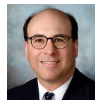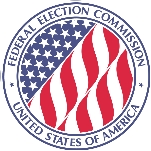Officials
Offical

Lee E. Goodman took a seat on the Federal Election Commission (FEC) on October 22, 2013, after being confirmed by the U.S. Senate on September 23. Goodman, a Republican, and Democrat Ann Miller Ravel, were nominated by President Barack Obama on June 21, 2013, to fill vacancies on the panel. Goodman’s nomination was based the recommendation of Sen. Mitch McConnell. The FEC’s mission is to enforce provisions of the Federal Election Campaign Act such as disclosure and restrictions on campaign contributions. Goodman was elected FEC chairman on December 17, 2013, a position that lasts for one year.
Goodman was born March 29, 1964, in Danville, Virginia, where his father was a lawyer and his mother a teacher. He attended George Washington High School there and played on the football team. Goodman went on to attend the University of Virginia, graduating with a B.A. in American Government and Rhetoric & Communication Studies in 1986. From 1986 to 1987 he worked as a policy analyst for the Fund for America’s Future, a conservative political action committee. He returned to Charlottesville to attend Virginia law school, where he was articles editor for the school’s Journal of Law & Politics. Goodman received his J.D. in 1990.
After graduation, he became an associate at the law firm Wiley Rein & Fielding. In 1995, he was tapped to be special assistant attorney general and associate general counsel to the University of Virginia, where he served two years. He was named in 1997 as counsel to the attorney general of Virginia.
Goodman went to work in the office of Gov. Jim Gilmore, a Republican, in 1998. He served as special counselor to the governor, deputy counselor and deputy director of policy during Gilmore’s four-year term. He was also chief of staff to the chairman of the Congressional Advisory Committee on Electronic Commerce from 1999 to 2000. Also in 2000, he was a member of the Bush-Cheney recount team.
In 2002, Goodman returned to Wiley Rein, moving to the firm LeClairRyan as a partner in 2005, focusing on election law. He has also lobbied Congress on behalf of such firms as America Online and Time Warner. In 2012, he helped the Ron Paul campaign handle delegate challenges in Louisiana, Massachusetts and Oregon. He also served as general counsel of the Republican Party of Virginia from 2009 to 2013.
Goodman has argued that corporations should be able to make contributions to political campaigns. “The vast majority of speech is still going to be carried on by candidates and their campaigns and the political parties,” Goodman said in an interview with OpenSecrets Blog.
“I do not think democracy's sky will fall after the Citizens United decision,” he added. “I don't think that the fear that large corporate expenditures are going to drown out the more populist voices in our democracy has ever been borne out.”
-Steve Straehley
To Learn More:
Federal Election Commission Gets New Blood (by Dave Levinthal, Center for Public Integrity)
- Latest News
- D.C. Public Schools will Teach all Second-Graders to Ride a Bike
- New Rule in Germany Limits Sales of Sex-Themed E-Books to 10pm to 6am
- What Happened to the 6-Year-Old Tibetan Boy the Chinese Government Kidnapped 20 Years Ago?
- U.S. Ambassador to Turkey Photoshops his Hair Color to Mock Turkish Mayor
- Mystery Artist Calls Attention to Unfixed Potholes by Drawing Penises around Them





